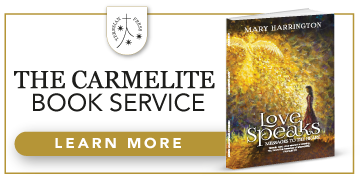Sorry, no records were found. Please adjust your search criteria and try again.
Sorry, unable to load the Maps API.
In a week where the United Kingdom has moved into a new era in its political leadership, it was apposite that Pope Francis should have devoted so much time this week to commenting on the nature and future of Western democracy.
On Sunday His Holiness was in the north eastern Italian seaport of Trieste for the final day of the annual Italian Catholic Social Week event. Speaking to more than 900 delegates from dioceses and Catholic action associations across Italy, Francis was clearly thinking of what has been a particularly turbulent week in modern history when he reflected at length on the crisis of democracy.
The history of Italy’s Social Weeks is entwined intrinsically in the country’s history. The event was initiated way back in 1907 by Blessed Giuseppe Toniolo, an Italian Catholic economist, sociologist, and pioneer of Christian democracy. Toniolo believed that the economy was an “integral part of the operative design of God” and argued for an economic system in which “all social, legal and economic forces, in the fullness of their hierarchical development, cooperate proportionally to the common good, flowing back into the final result to the prevalent advantage of the lower classes.”
Quoting this specifically in his speech, Pope Francis remarked that “in light of this definition, it is evident that in today’s world democracy, let’s face it, is not in good health.”
Whatever your political perspective, there are few who would disagree looking at the political events of the past few weeks in particular. One could even argue that we have reached a point in the general social order where the fundamental good of man is now at stake, and society is moving close to a tipping point from which it may be extremely hard to reconstruct a state resembling order, solidarity and mutual co-operation.
Here in the UK the many new legislators who headed to Westminster yesterday to take up their posts for the first time have an extremely challenging task ahead of them. Social media was heavy with pictures of beaming smiles and overnight bags on local railways station platforms, but one couldn’t help feeling that the coming weeks and months will test the metal and determination of even the most resolute of our legislators. We could do with keeping them all in our prayers.
For the government, and for our new Prime Minister in particular, there will be a need to lay out bold and long-term strategies to rebuild an economy battered by years of austerity, and a sense of democracy that frankly has been dying on its feet.
One of the first pontiffs to speculate on the nature and composition of a functioning – and especially communitarian and Christian – democracy was Pope Leo XIII, who is generally regarded as the founding father of Catholic Social Teaching. We’re all familiar with his great encyclical Rerum Novarum (1891), but two of his subsequent encyclicals – Au Milieu des Sollicitudes (1892, on the state of the Church in France) and Graves de communi re (1901 on Christian democracy) – also have a great deal to tell us today about how a stable democratic society and government might be constructed.
Central to Leo’s vision was the principle that democracy must “benefit the lower classes of society”, work for the common good and reject individualism. For Leo, Toniolo and all who have subsequently walked the path of Catholic social justice a democracy cannot be built without its members acknowledging that in a profound and fundamental way all of society is interconnected and we are all responsible for each other.
The notion of an interconnected and communitarian society is a concept that is still new to us, and only really emerged into national and socio-political narratives after the dreadful experience of the two World Wars, when old social structures and economic certainties were swept away in the carnage and tumult. In any sane society the waste, chaos and pain of resorting to physical combat when talking fails ought to have died after 1945 but sadly the human species seems painfully slow to learn from its experiences, and often looks destined to endlessly repeat its determination to self-destruction.
It is often hinted that we may be on the brink of a new and even more terrible world war. Pope Francis believes it actually started some time ago, and is just manifesting itself now in a range of appalling micro-conflicts breaking out across the globe. In January last year, during a meeting with diplomats accredited to the Holy See, he noted: “This third world war is taking place in a globalised world where conflicts involve only certain areas of the planet directly, but in fact involve them all.”
At Trieste last Sunday he was clearly thinking of the perilous state of Western democracy when he warned that the present conflagrations “represent a warning for the entire human society and for the path of all peoples.” At the centre of this present malaise, argues Francis, is social exclusion, and in particular the deprivation of the poor and vulnerable.
“Every time someone is marginalised, the entire social body suffers. The throwaway culture designs a city where there is no room for the poor, the unborn, the fragile, the sick, children, women, young people, the elderly. This is the throwaway culture. Power becomes self-referential – this is a nasty disease –, incapable of listening and serving people,” said Francis.
For a society to be reframed according to these principles is a profound challenge, such has been the drift of society away from community and shared responsibility.
Another way of looking at this problem is to see a healthy, Christian society in terms of empowerment. So long as a socio-economic system produces a victim and any single person is marginalised, there can be no declaration of universal solidarity. Thus a government aspiring to democracy has to create social structures that not only accompany everyone on their path through life, and provide for their primary needs, but that enable everyone to give the best of themselves – whatever that may be.
When one applies this test to contemporary British society in particular, there is clearly a lot of work to be done. Many of the most challenging and controversial issues that characterised the General Election are precisely those where the dignity of the human person, and the care of the most vulnerable of human persons, is being tested and found wanting. Immigration, healthcare, social security, the dignity of the elderly, our failing prisons system and the blight of increasing poverty are the profoundest enemies of any democracy. They are conditions of indifference that lead to division, antipathy, exclusion and social disorder.
Over the coming months we’ll be looking to our new legislators, and our new government, to address and ameliorate these and many other pressing issues. But we cannot simply stand at a window and watch – the long history of our Faith and of Catholic social teaching demands that we participate in creating of society what Pope Francis has called “a healed heart”.
“If we look around us, we see many signs of the action of the Holy Spirit in the life of families and communities,” Francis said at Trieste.
“Even in the fields of economics, ideology, politics, society. Let us think of those who have made room within an economic activity for people with disabilities; to workers who have given up their rights to prevent the firing of others; to renewable energy communities that promote integral ecology, also taking care of families in energy poverty; to administrators who promote birth rates, work, school, educational services, accessible housing, mobility for all, the integration of migrants.
“All these things do not enter into a politics without participation. The heart of politics is to participate. And these are the things that participation does, taking care of everything; not just charity, taking care of this …, no: everything!”
This concept of political love is a form of charity that isn’t content with treating the effects of social problems, but challenges the causes. It calls on politicians to emerge from polarisations and live up to their responsibilities when they talk about equality and a just and secure society for all. It’s also a form of civil passion that challenges Catholics to examine exactly what it is we mean by often over-used phrases like ‘the common good’, ‘the preferential option for the poor’ and ‘welcoming the stranger’.”
The uncertainty and socio-political instability that is currently sweeping across the world is raising profound challenges for the future of democracy, and never before has there been such an urgent need for the Catholic voice to be heard in the public space, to help social relationships flourish and to build dreams for the future.
“This means not so much demanding to be heard,” said Pope Francis in Trieste, “but above all having the courage to make proposals on behalf of justice and peace in the public debate.”
Here in the United Kingdom we have a once-in-a-generation opportunity to put our long and self-facing discussions on Catholic social teaching into practice. Much as it is for those smiling faces heading to Westminster on the trains yesterday, the time for talking has passed, and the time for doing has now arrived.
Joseph Kelly is a Catholic writer and theologian
Photo: © Vatican News






























